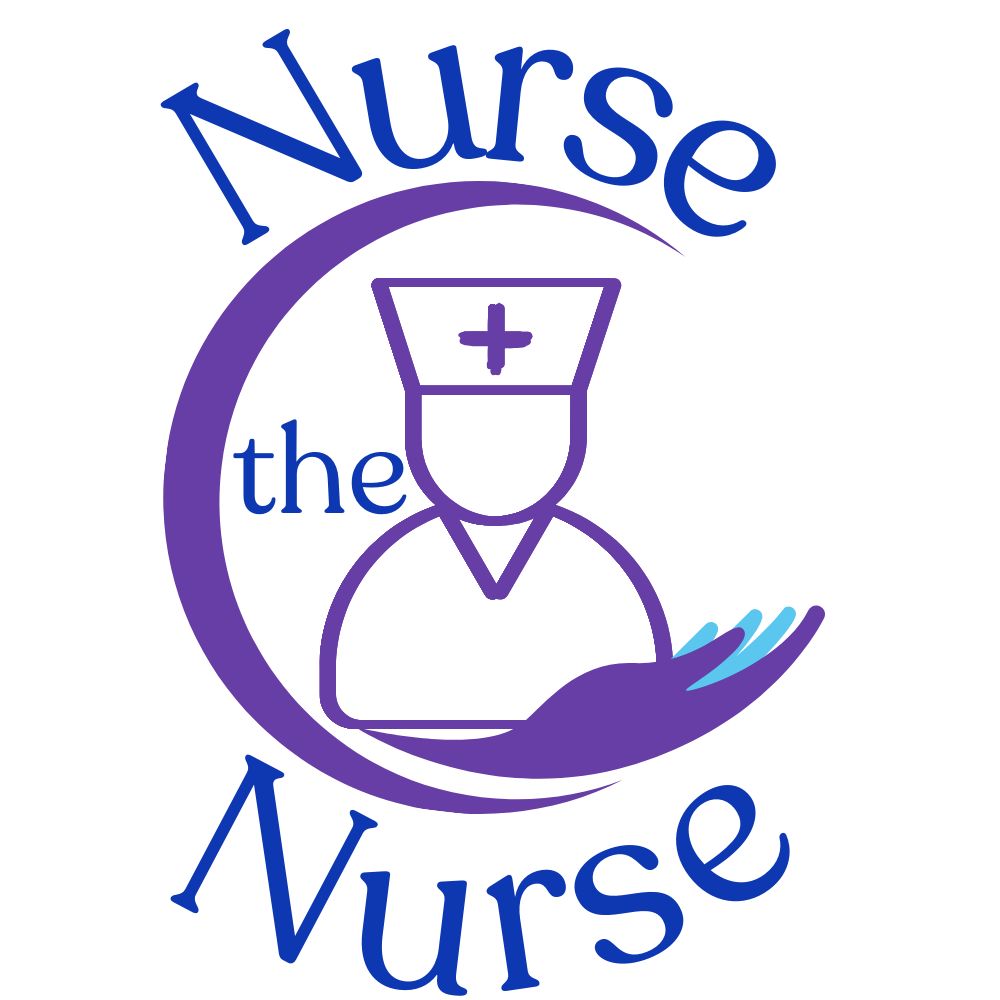LPN vs RN: What's the Difference?
LPNs provide foundational healthcare tasks under RN or physician supervision, while RNs have a broader scope involving patient assessments and care planning with greater autonomy.

Choosing between LPN and RN is a significant decision for those seeking a nursing career. Direct comparisons of job functions, necessary education, career growth, and salaries are vital in the “LPN vs RN” debate. The LPN typically requires less training but has a more limited scope of practice, while the RN requires more education and offers broader responsibilities and higher earning potential. This article provides essential insights to guide your choice in the lpn vs rn decision.
Key Takeaways
- LPNs provide foundational healthcare tasks under RN or physician supervision, while RNs have a broader scope involving patient assessments and care planning with greater autonomy.
- The educational pathways for LPNs and RNs differ in program length and focus, with both requiring passing their respective NCLEX exam for licensure and reflecting their professional responsibilities.
- RNs generally receive higher compensation than LPNs, reflecting their expanded scope and education, with positive job growth and advancement opportunities expected for both roles in the healthcare field.
Understanding the Roles: LPN and RN Explained

Licensed Practical Nurses (LPNs) and Registered Nurses (RNs) play distinct roles in healthcare settings. While both provide essential care, their job duties and levels of responsibility vary. LPNs, for instance, perform basic nursing care tasks such as monitoring patient comfort, often under the supervision of a registered nurse or physicians. On the other hand, RNs take on a more comprehensive role in patient care, involving themselves in all stages of the care process, which includes assessment and care plan development.
Consider an LPN as the front-line soldier, ensuring that patients are comfortable, their vital signs are monitored, and their immediate needs are met. RNs, meanwhile, are akin to the strategic planners, providing direct patient care and emotional support to families while concurrently offering education that extends beyond the focus of LPNs. Their extensive involvement may include everything from medication management to family counseling, thus providing a holistic approach to care.
Essentially, both LPNs and RNs are vital components of the healthcare team, each playing a unique role in ensuring the well-being of patients. Yet, the extent and depth of their responsibilities differ, with RNs having more autonomy and involvement in patient care planning.
Essential Job Duties of an LPN
Licensed Practical Nurses perform a variety of tasks, including:
- Planning and managing patient care
- Administering routine procedures
- Interviewing patients and recording their medical history
- Observing patients’ health over time
- Monitoring patients by obtaining vital signs such as pulse, blood pressure, temperature, and respiration
- Ensuring accurate documentation of vital signs and other health metrics
These duties are tailored to the individual needs of each patient, and LPNs play a crucial role in providing quality medical care.
LPNs also carry out a variety of routine procedures, including administering injections and enemas, monitoring catheters, and working diligently to maintain patient comfort. They work under the guidance of physicians and RNs, effectively communicating with patients and their families, and guiding patients upon their arrival to healthcare facilities. In essence, LPNs provide the hands-on care that contributes significantly to patient comfort and recovery.
The Expansive Role of RNs
Registered Nurses have a broader scope of practice compared to LPNs. They are involved in:
- Providing and coordinating patient care
- Educating patients and the public about health conditions
- Taking on management roles within various healthcare settings
- Conducting standard diagnostic procedures such as EKGs, phlebotomy, venipuncture, PFTs, and Dopplers
- Conducting patient assessments and evaluating the results to create care plans.
The work environments for RNs are diverse, including:
- Hospitals
- Physician offices
- Home healthcare services
- Schools
Their education covers a wide array of topics, including primary care, management skills, and acute-care settings to fulfill their expansive role. They also possess the authority to delegate nursing duties to unlicensed staff like certified nursing assistants, allowing them to manage team resources effectively.
Difference in Scope of Practice between RN and LPN
The distinction between LPNs and RNs is most evident in their respective scopes of practice. For instance, RNs have a wider scope when it comes to assessment and care planning. They are trained to conduct comprehensive patient assessments, interpret diagnostic tests, and develop intricate care plans. On the other hand, LPNs are typically involved in gathering basic health data and implementing care plans under the supervision of RNs or physicians.
Another key difference lies in the area of delegation and education. RNs possess the authority to delegate tasks to LPNs and other unlicensed staff, ensuring that patient care is carried out effectively and efficiently.
In terms of education, RNs provide comprehensive education to patients and their families, often encompassing disease management, medication use, and health promotion. LPNs, however, provide basic health education under the guidance of RNs.
Educational Pathways: From Training to Professional License

Embarking on a nursing career, whether as an LPN or RN, involves completing an accredited nursing program as a prerequisite for obtaining a professional license. The journey may differ in length, with LPNs typically completing a shorter nursing program compared to RNs. Yet, a common denominator for both LPNs and RNs is the requirement to pass the National Council Licensure Examination (NCLEX), a standardized measure that nursing candidates must conquer to commence their careers.
Different versions of the NCLEX cater to the different roles. LPNs must pass the NCLEX-PN, and RNs must pass the NCLEX-RN, with each exam tailored to the specific scope of practice and level of responsibility inherent in the respective roles. Thus, the educational journey for LPNs and RNs, while sharing some common elements, is largely distinct, reflecting the differences in their roles, responsibilities, and scopes of practice.
LPN Education: A Stepping Stone in Nursing
The path to becoming an LPN typically involves completing a one-year practical nursing program at a technical or community college, which may also include a state-approved certificate program. This education pathway serves as a stepping stone into the nursing profession, preparing students with the fundamental skills and knowledge necessary for providing basic nursing care.
The LPN curriculum covers a variety of subjects including:
- Nursing
- Biology
- Pharmacology
- Anatomy and physiology
- Psychology
- English Composition
- Lifespan development
This broad-based education equips potential LPNs with a well-rounded knowledge base, paving the way for them to provide effective patient care in various healthcare settings.
Advancing to RN: Degrees and Opportunities
For those eyeing the RN designation, there are several educational paths to licensure. These include earning a bachelor’s degree, such as a Bachelor of Science in Nursing (BSN), or an Associate’s Degree in Nursing (ADN). An ADN educated nurse can work in the field and then choose to continue school to get the BSN. The RN-BSN degree pathway, in particular, provides nurses with advanced competencies in areas such as health policy, evidence-based practice, and care coordination.
Admission to RN-BSN programs often requires completion of a 3-credit statistics course, as well as ethics, which can be taken prior to or during the program. RN-BSN programs typically require 120 total credits, inclusive of 30 credits from RN-BSN specific coursework, accepted transfer credits, and potential credits awarded for prior learning. These programs equip RNs with the analytical and leadership skills necessary to take on more advanced roles in the healthcare industry.
Salary Snapshot: LPN vs RN Compensation Comparison

When it comes to compensation, RNs tend to earn a higher median annual salary compared to LPNs. As of May 2022, the median annual wage for RNs was $81,220, significantly higher than LPNs, who earn a median annual salary of around $54,620. However, various factors can influence these figures, with geographical location, work environment, and experience significantly affecting LPN salaries. Similarly, an RN’s salary can be impacted by their education level, years of experience, responsibility, nursing specialty, and the type of healthcare facility they work in.
For instance, LPNs in Alaska and California earn the highest average annual salaries, while RNs in California earn the highest average salary nationwide. Transitioning from an LPN to an RN role can lead to a substantial salary increase, reflecting their expanded responsibilities and level of education. However, it’s important to note that the rewards of a nursing career extend beyond monetary compensation. Some of these rewards include:
- The opportunity to make a meaningful difference in patients’ lives
- The ability to work in a variety of healthcare settings
- Job security and a high demand for qualified nurses
- Opportunities for career advancement and specialization
These rewards make nursing a fulfilling and rewarding career choice.
Career Outlook and Advancement Potential
Looking to the future, the job outlook for both RNs and LPNs is positive. Here are some key labor statistics:
- RN employment is projected to grow 6 percent from 2022 to 2032
- LPN jobs are expected to grow by 5.3 percent during the same period
- An average of about 193,100 job openings each year are anticipated for RNs over the next decade
This growth is largely attributed to the need to replace workers transitioning to other roles or retiring.
When it comes to advancement potential, RNs generally have more opportunities for career specialization and advancement within healthcare facilities. They can choose to specialize in areas such as critical care or pediatrics, providing them with opportunities to hone their skills in a particular area of patient care. LPNs, on the other hand, tend to work in roles with more direct patient interaction, which can be equally rewarding but may offer fewer opportunities for career advancement.
Yet, despite these differences, both LPNs and RNs play a vital role in providing patient care, each bringing unique skills and experiences to the table. Whether you choose to become an LPN or an RN, rest assured that you will be stepping into a rewarding career with plenty of opportunities for personal and professional growth.
Which Nursing Path is Right for You?
Deciding between the LPN and RN paths is a personal choice that depends on several factors. For instance, if you’re drawn to a role involving greater autonomy and a broader scope of practice, becoming an RN might be the right choice for you. RN roles allow for independent task completion and more involvement in patient assessments and treatment plans.
On the other hand, if you enjoy providing basic care and assisting RNs and physicians, becoming an LPN could be the perfect fit. LPNs often have more direct patient interaction and are crucial in the daily care of patients. Plus, the educational pathway for LPNs is usually shorter, allowing you to enter the workforce more quickly.
Other factors to consider include program length and cost, salary expectations and preferred work environment. RNs generally earn higher salaries than LPNs, reflecting their expanded responsibilities and level of education. Additionally, the job outlook for both LPNs and RNs is positive, with LPNs expected to see slightly faster job growth rate.
Ultimately, your decision should align with your career goals, personal interests, and the type of work you find most fulfilling.
Transitioning Between Nursing Roles
For LPNs aspiring to take on more responsibilities and advance their careers, transitioning to an RN role is a viable path. This process involves completing an accredited RN program and successfully passing the NCLEX-RN examination. With prior LPN experience, some program requirements may be waived, potentially shortening the typical two to four-year transition.
Flexible learning options are available for LPNs through bridge programs, which offer both on-campus and online formats. These include LPN-to-ADN and LPN-to-BSN programs, allowing LPNs to pursue different career goals. Online LPN to RN programs enable LPNs to manage their studies alongside work responsibilities, taking two years for an ADN or up to four years for a BSN.
Upon completion of these bridge programs, graduates can secure employment in diverse healthcare settings, including physicians’ offices, nursing homes, and research hospitals. However, it’s important to remember that continuous education is vital in health care for enhancing skills, knowledge, and the overall quality of care provided by nurses.
Summary
In conclusion, both LPNs and RNs play crucial roles in the healthcare industry, each with its unique responsibilities, educational requirements, and career prospects. LPNs provide fundamental patient care and work closely with RNs and physicians, while RNs have a broader scope of practice, often involving more complex patient assessments and care planning.
Whether you choose to become an LPN or an RN, both paths offer rewarding careers in a field that’s projected to grow over the next decade. The choice ultimately depends on your personal interests, career goals, and the type of work you find most fulfilling. Regardless of the path you choose, remember that nursing is more than just a profession—it’s a calling to make a meaningful impact in people’s lives.
Frequently Asked Questions
What is meant by scope of practice?
The scope of practice refers to the activities a healthcare practitioner is allowed to perform based on their education, training, and experience within a specific profession. It is essential to define these activities clearly to ensure safe and effective patient care.
Can an LPN call time of death?
No, an LPN cannot call time of death, but they can gather clinical data and report findings to a licensed physician or registered nurse who can then make the determination.
Why are LPNs not autonomous?
LPNs are not considered autonomous nurses because they work under the supervision of an RN or a physician and cannot assess, diagnose or treat patients independently. However, LPNs do have the training to perform a focused assessment involving a single body "system", and can identify changes from a baseline RN assessment.
Is LPN or RN better?
In general, RNs have longer education programs and a broader scope of practice, offering more independence in the workplace. LPNs usually provide more basic nursing care and are responsible for the comfort of the patient.
What can an RN do that an LPN Cannot?
RNs can perform diagnostic tests, administer medications, and educate patients on health management, while also overseeing LPNs, CNAs, and home health aides. This gives them a more expanded scope of practice than LPNs.
